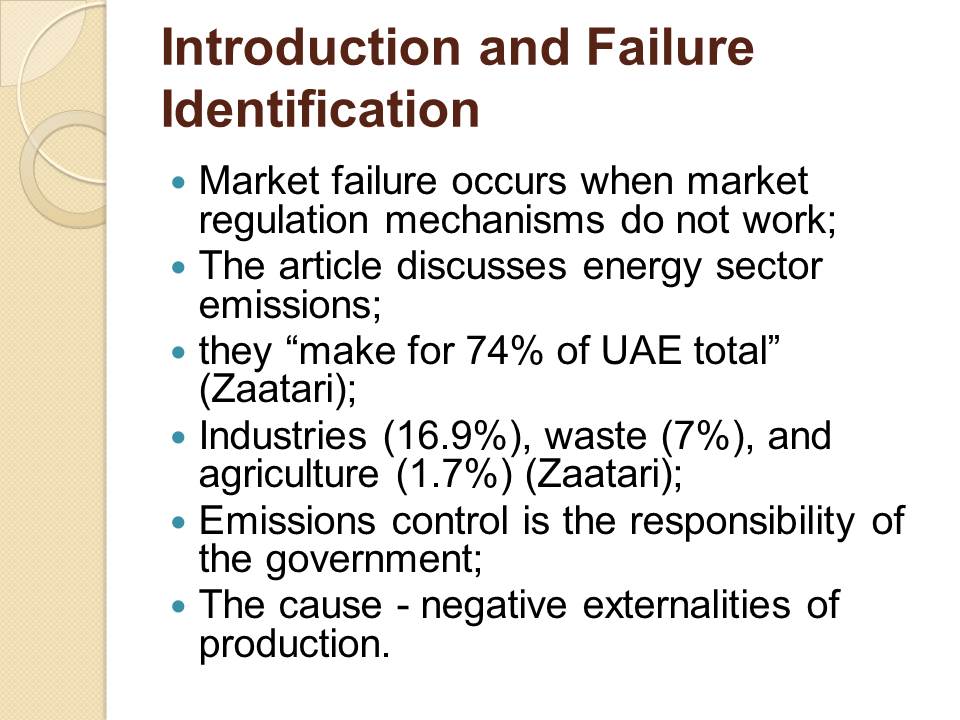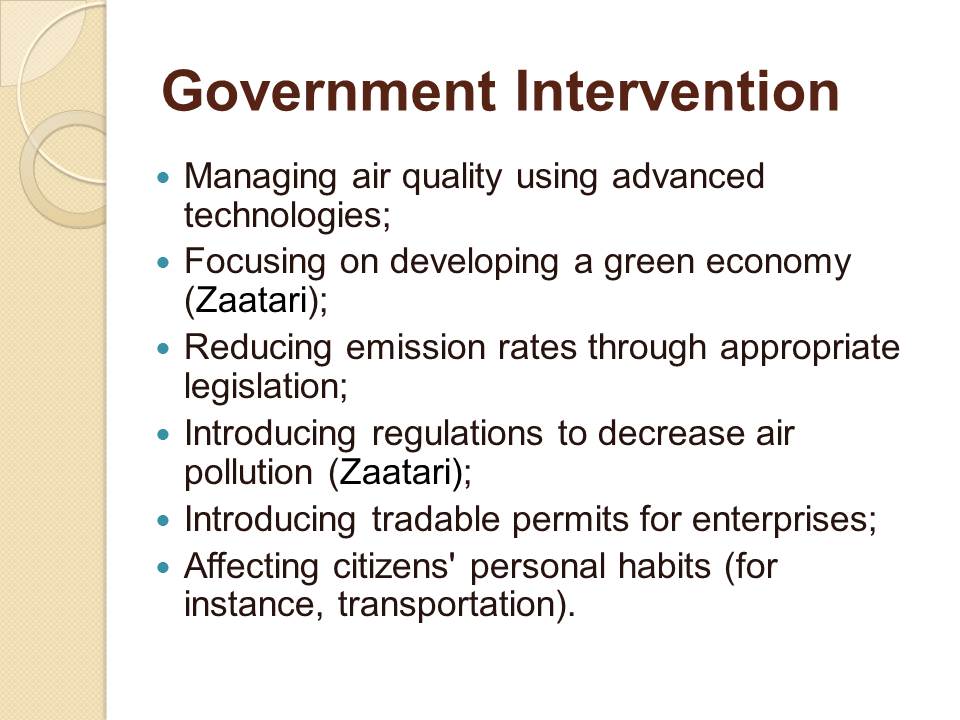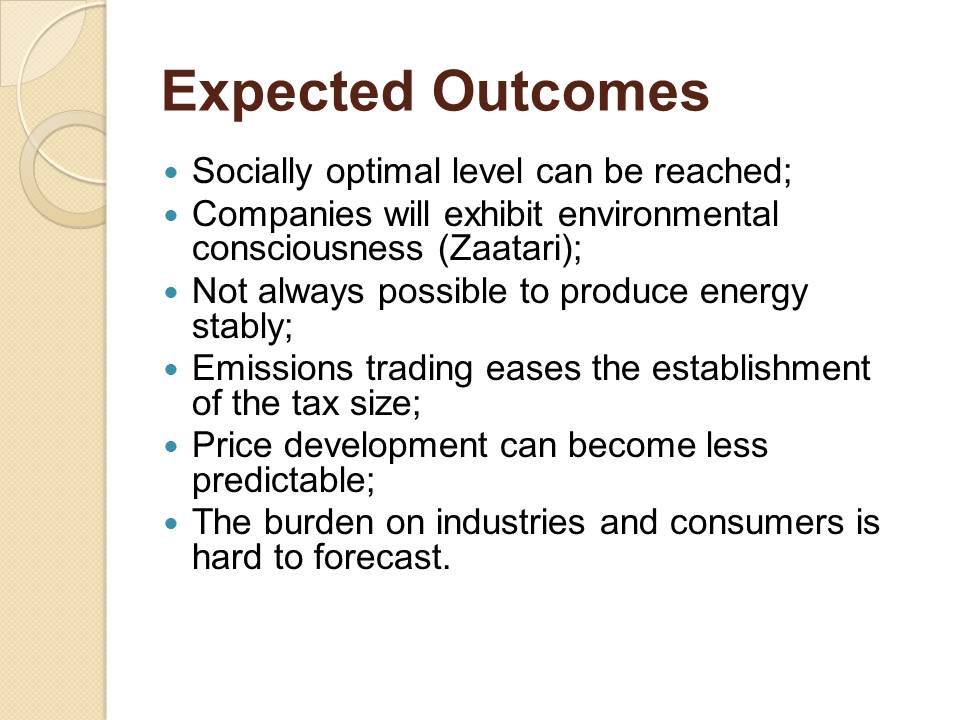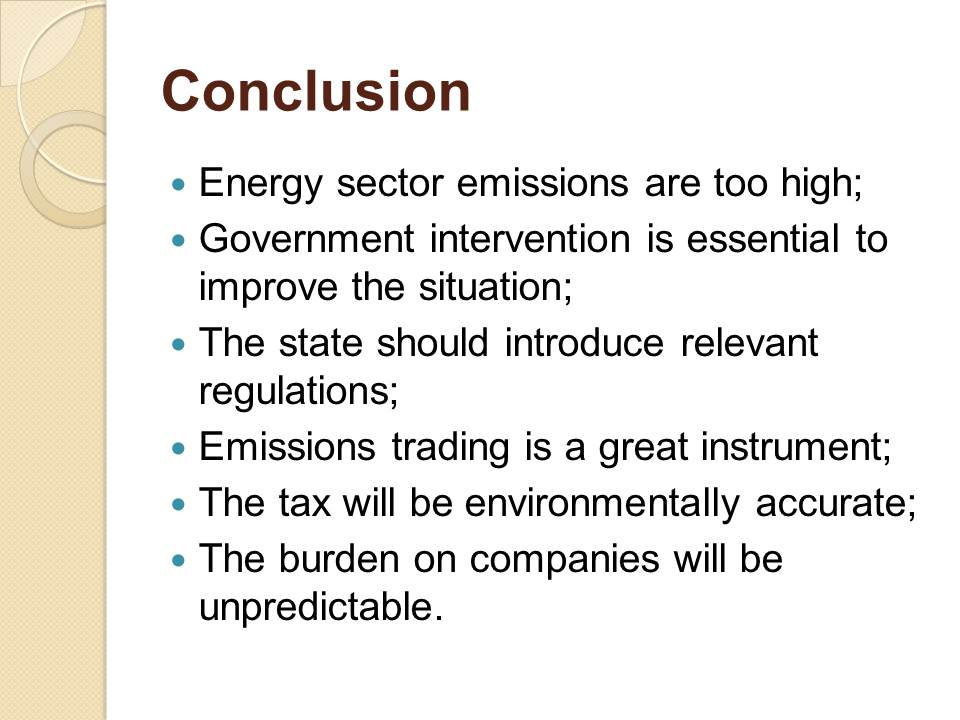Introduction and Failure Identification
- Market failure occurs when market regulation mechanisms do not work;
- The article discusses energy sector emissions;
- they “make for 74% of UAE total” (Zaatari);
- Industries (16.9%), waste (7%), and agriculture (1.7%) (Zaatari);
- Emissions control is the responsibility of the government;
- The cause – negative externalities of production.
Market failure is an event, which occurs when market regulation mechanisms do not work.
The article by Zaatari discusses energy sector emissions, which should be regarded as a market failure. According to the text, “energy sector emissions make for 74% of UAE total” (Zaatari). Quite a big percentage is also related to industries, waste, and agriculture emissions. Emissions control is the responsibility of the government; therefore, environmental damage is considered a market failure. Negative externalities of production result in a spillover, which affects third-parties.

Government Intervention
- Managing air quality using advanced technologies;
- Focusing on developing a green economy (Zaatari);
- Reducing emission rates through appropriate legislation;
- Introducing regulations to decrease air pollution (Zaatari);
- Introducing tradable permits for enterprises;
- Affecting citizens’ personal habits (for instance, transportation).
The government can correct this market failure in several ways. It can exercise control over air quality using advanced technologies. Also, the state should strive for an inclusive green economy (Zaatari). According to the article, the government has already taken measures to develop greener industries, which can be a beginning of a healthier economy in general (Zaatari). Moreover, emission rates can be reduced through the introduction of relevant legislation and regulations. Tradable permits can become a useful instrument in managing environmental damage. The government should also affect citizens’ habits by encouraging them to use public transport.

Expected Outcomes
- Socially optimal level can be reached;
- Companies will exhibit environmental consciousness (Zaatari);
- Not always possible to produce energy stably;
- Emissions trading eases the establishment of the tax size;
- Price development can become less predictable;
- The burden on industries and consumers is hard to forecast.
The intervention will ensure that the socially optimal level of emissions can be reached. Companies will show their environmental consciousness and exhibit greater social responsibility (Zaatari). However, one of the disadvantages of the strategy lies in the fact that energy production may no longer be stable. Nevertheless, emissions trading will make it easy to set the amount of tax. Another issue is connected to price development since prices are likely to become unpredictable. Therefore, the burden on industries and consumers is hard to forecast.

Conclusion
- Energy sector emissions are too high;
- Government intervention is essential to improve the situation;
- The state should introduce relevant regulations;
- Emissions trading is a great instrument;
- The tax will be environmentally accurate;
- The burden on companies will be unpredictable.
The article by Zaatari allows concluding that increased energy sector emissions are a market failure, and this issue is of paramount importance for the society. Certain government interventions will help take control over the situation. The introduction of tradable permits and emissions trading will allow establishing accurate taxation and transitioning towards a greener economy. Nonetheless, this government intervention has particular disadvantages since the burden on industries and consumers will be difficult to predict. Therefore, price-setting strategies should be considered thoroughly, and state tradable pollution permits should be introduced at the national level.

Work Cited
Zaatari, Sami. “Energy Sector Emissions Make for 74% of UAE Total.” Gulf News, 2017, Web.